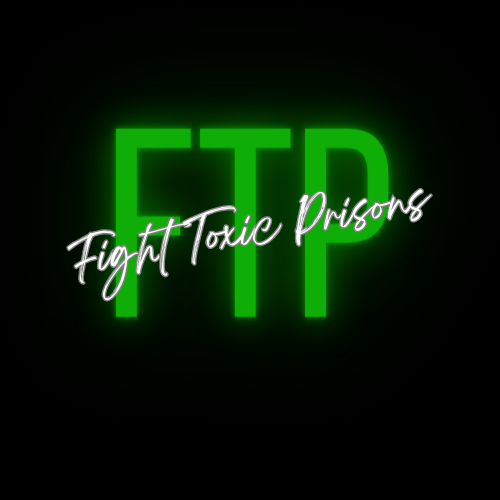Please register to attend here
(This allows us to plan on accomodating everyone for food, housing, childcare, accessibility, etc.)
You can help us build hype via social media here
The 2019 Fight Toxic Prisons Convergence is taking place June 14-17 in Gainesville, Florida and will include speakers, panels, workshops, protests and cultural activities exploring the intersections of anti-prison and environmental struggles. We are currently confirming venue, speakers, music and action plans for the conference and are excited to share updates with y’all in the coming months. We maintain a commitment to creating a space in which those most directly impacted are at the forefront of this conversation.

Cost:
The Convergence is always free, we just ask for a sliding scale donation ($25 – $50) to help us cover costs, primarily to provide assistance with transportation, food and housing to make the event broadly accessible to people hit hardest by repression, criminalization and toxicity. Folks who can donate more make it possible for people to attend who may otherwise not be able to. If you cannot attend but want to help fund-raise to get others there, that would be amazing! Our fundraising page is here.
Travel:
The closest airport is the Gainesville Regional Airport, though tickets are often much less expensive into Jacksonville, Orlando or Tampa (all in 1 – 2 hour drive). There are also Greyhound, Megabus and Amtrak train routes. Please get in touch with us directly if you have any additional questions about travel and housing logistics which are not addressed in the registration form.
Background:
Fight Toxic Prisons seeks to build momentum across, bridges between, and solidarity amongst the movements for ecological defense, environmental justice, and prisoner support and prison reform/abolition. Through our annual convergences we seek to create space at the intersections of various movements and across prison walls (at our 2018 convergence, for example, 9 prisoners called in to speak on panels and breakout groups). We aim towards a space through which we can collectively explore how we might achieve liberation and justice. A space where we can directly share and learn from tactics, strategies, and experiences beyond the scope of our particular movements and campaigns that might play decisive roles in our local victories in tandem with our global resistance.
Why Gainesville:
North Florida is home to some of the most repressive prisons in the country, with a steady stream of headlines about racist beatings, guards involved in KKK plots, censorship of critical books and magazines like The New Jim Crow and Prison Legal News (not to mention, mail from us!).
There are over a dozen local, state and federal prisons within an hour radius drive of Alachua County, tens-of-thousands of people locked in cages, where Gainesville and the University of Florida is located.
Prisons in the region are full of environmental justice issues, from chronic mold infestations to neighboring both existing and proposed mine sites,such as RMC Lake Butler which could be surrounded by 10,000 acres of phosphate strip mine, and landfills (such as Hamilton CI where prison slaves are used to literally process the free world’s garbage). To top it off, prisoners face the worst of hurricane impacts, and then are used as slaves in hurricane clean up efforts. They experience some of the worst water quality, then are forced to clean up dead fish from toxic red tide algae blooms…
While Gainesville was once referred to as “the Berkeley of the South” for its student anti-war activism in the ’60s and ’70s, its actual name comes from a U.S. General who’s claim to fame was in laying siege to a well-known community of escaped slaves which had occupied an abandoned military fort in the Panhandle. The city is also home to a campus still full of buildings named after administrators and politicians that opposed the passage of the Civil Rights Act and the integration of the school. Today UF has allowed this legacy of inequality to manifest in its contracts with prison slave labor working its agricultural research centers across the state. This modern slavery is also used by government agencies all over Florida.
The region is also home one of the most rebellious prison populations in the country, where public records have surfaced under-reported news about hundreds of work stoppages, hunger strikes and full-blown uprisings in Florida’s state prisons. And solidarity demos in response have also been growing in numbers and boldness.
Hope to see ya soon in Gainesville!
– FTP Crew



Leave a comment